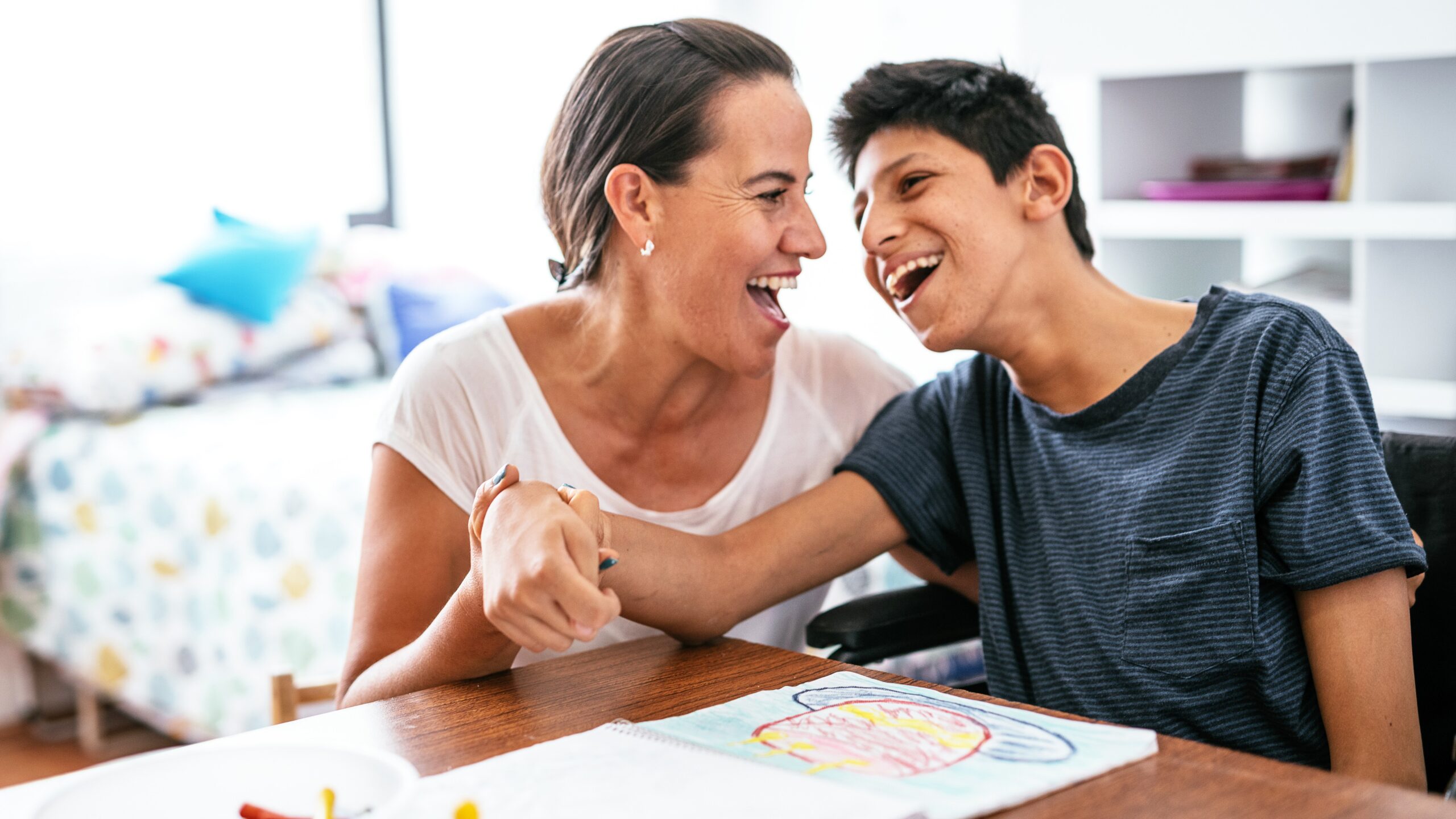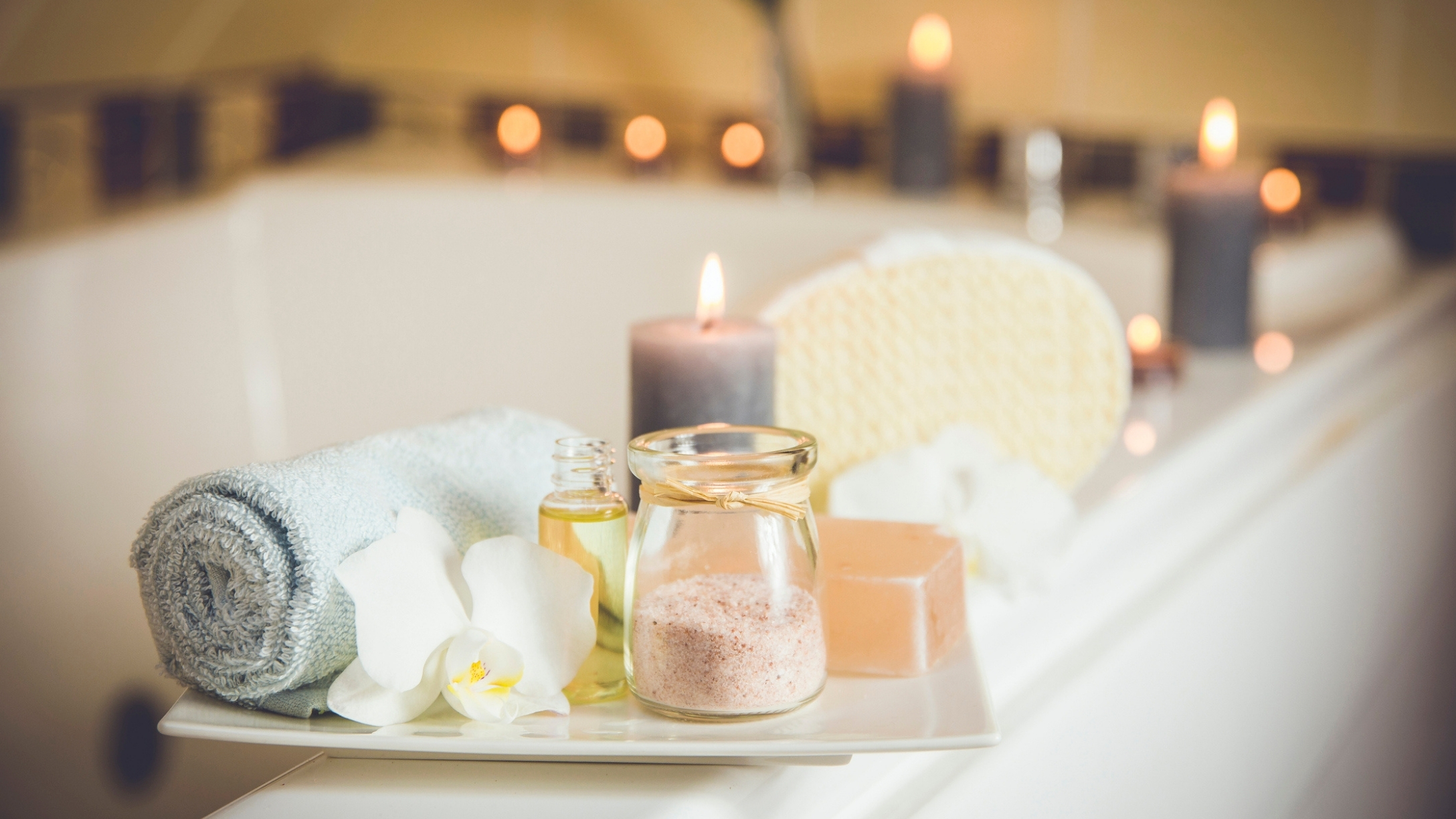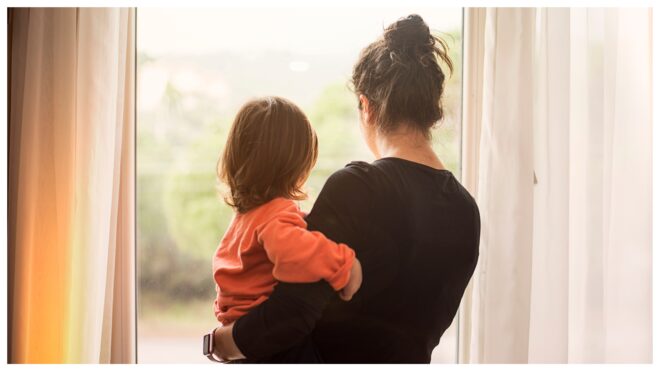
Here’s something to remember next time you’re feeling stressed out, frustrated, or depressed: Parents are people! We are not machines running on autopilot, expected to say and do everything perfectly and please everyone (especially tiny people with big tempers!). Parenting is hard. Maybe the hardest thing we will ever do in our lives. Especially during the health crisis. When emotions are flying high and you’re feeling like you’re the one needing a time-out, try one of these expert suggestions on how to be a happier parent.
Stop Feeling Guilty About Self-Care

The first step toward achieving greater happiness is to stop feeling guilty about self-care, according to Dr. Michele Kambolis, a registered therapist and author of When Women Rise: Everyday Practices to Strengthen Your Mind, Body, and Soul.
Dr. Kambolis tells LittleThings, “In truth, self-care isn’t selfish, and it isn’t trivial — it’s an outright necessity. Life is an ongoing practice of self-care. When you drink a cup of herbal tea, sigh a long exhale, hold a moment of appreciation, or walk to the store rather than driving, you’re honoring yourself with self-care. So, when you find yourself searching to justify taking your full lunch break or feeling guilty about asking the kids to play on their own because you want to turn inward with a little journaling, remind yourself that your child is the beneficiary of your well-being.”
Give Up Your Super Suit
Trying to be Supermom or Superdad can be exhausting, for you and for them, notes Spencer Snakard, professional certified coach (PCC) and mom of four.
"Kids want and need to figure things out on their own," she says. "Yes, be there to guide and support them, but let them stumble and occasionally fall, too. You can’t protect them from every possible mishap for the rest of their lives, and letting them experience some mishaps now, with your love and support, will give them the skills and confidence to face them long after they leave the nest."
Schedule 'Me Time'
Jennie Marie Battistin, Hollywood therapist and bestselling author, recommends actually scheduling me time. “Set aside 30 to 60 minutes a week for self-care,” she tells LittleThings. “This could be a bath, reading a good book with a cup of tea, a massage, or [taking] a walk at the park, beach, or river.”
Disconnect From Technology
Battistin also suggests you extend that practice to the rest of the family: “Put down the phones, iPads, and gaming systems for 20 minutes every day, and ask everyone the best part of the day. Practicing gratitude with your kids can help you see the joy in the world through their eyes and fill up your joy cup as well.”
Plan Simple Family Activities
Melissa Jones, founder of Girls Positivity Club, tells LittleThings, “Break out the board games, get out the construction paper, play cards, tell stories of when you were young around the fireplace or campfire, get out the sidewalk chalk, finger-paint, play Bingo with cheap prizes, play catch, take the dogs for a walk. What kids care most about is the quality time they spend with you, not on how many days you can spend or how much money you spend on them. The memories are built around the simple times, and those are often what makes everyone happiest. Whether you bake chocolate chip cookies from a tube, play restaurant where you make homemade menus and the kids wear aprons as the cooks or servers — it really doesn’t matter. Simple is better, and it’s what will add happiness to your family moments.”
Step Into the Healing Current of Gratitude
Dr. Kambolis finds this to be helpful in times of stress: “When you’re running late to get the kids to school or dealing with a temper tantrum, it can be easy to get caught up in a negative internal story. When those stories are played out over time, they wipe the joy out of parenting. One of the most scientifically supported ways to bolster a sense of satisfaction is to turn your mental lens towards gratitude. A single dose of gratitude can increase both dopamine — which is associated with pleasure, motivation, and emotional heightening — and serotonin, the happiness neurochemical that stabilizes mood. When we feel good, our body can naturally counteract any symptoms of anxiety, depression, and parenting stress.
"Take a few minutes every evening to sit quietly and reflect on three things that went well and why they went well. They need not be big events; simple things will do. Record the three events in a journal or on a device. Making a record is important to this exercise. As the week comes to an end, reflect on the impact of pausing each day to sit in appreciation for the moments of contentment, joy, and respect for this given life.”
Connect Individually With Each Child

Meg O'Neill, a life coach, shares, “What I am trying to implement in 2022 with my three kids is 10 minutes of individual connection most days of the week. Asking them what they want to do and joining them without distraction. This helps me be a happier parent because their cup is filled and therefore [they] have less negative attention-seeking behaviors. We also get to have lots of fun together, and they remind me to tune into my inner kiddo!"
Pick Your Battles

Dr. Cook says, “The next time your toddler or teen plants their feet on the ground and starts the ‘I dare you to make me do it’ stare, ask yourself if this is the hill you need to die on today. More than likely the answer will be ‘no,’ which means you need to shift your brain toward problem solving instead of fighting back. Because believe me, this won’t be the only toe-to-toe you’re going to have today, and the next one may need you to battle, so save your energy. You might find you don’t need it nearly as much as you thought once you find a way to remain calm during your child's storm. We feel happier when we feel in control, so control the battles you engage in with kids.”
Find Ways to Connect With Other Like-Minded People

Authentic connection is an important component of overall happiness, life coach Kristin Micalizzi tells LittleThings: "While it’s important to have people you can vent to and share your honest feelings, it's critical to avoid gossip or constant negativity. Prioritize whatever sparks your creativity. If you spend more time on the things that bring you joy, you will improve your overall mindset for the parenting tasks that are less enjoyable — or just downright undesirable."
Consider Seeing a Therapist
Seeking therapy doesn't require a crisis or a lifetime commitment, says Dr. Bethany Cook, author of For What It’s Worth: A Perspective on How to Thrive and Survive Parenting Ages 0-2. “Seeing a professional for five to 10 sessions can definitely help you develop and refine effective coping strategies for managing life, which improves overall feelings of well-being.”
Simply taking the time to read this article counts as self-care, so go ahead and smile. You’ve just begun a happier path to parenthood.







